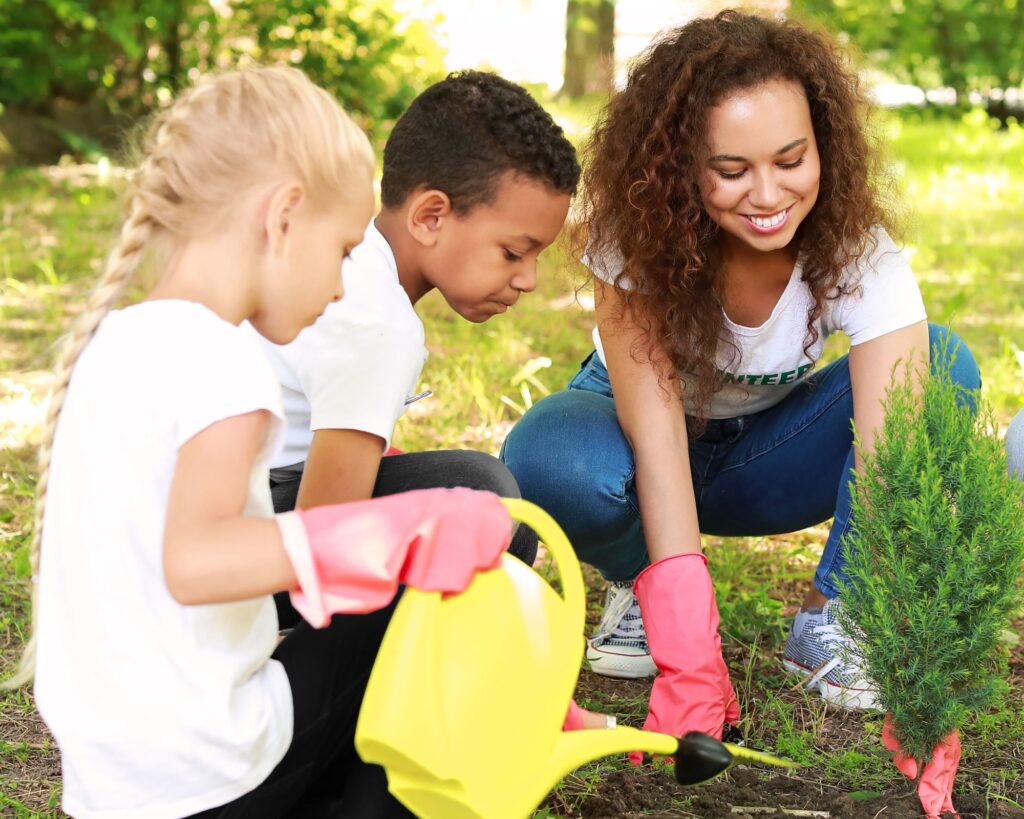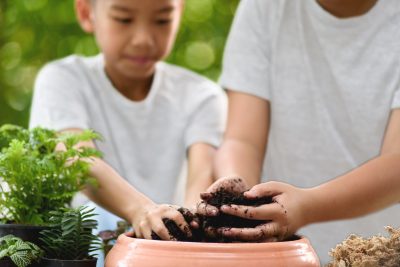Whether you already have a thriving school garden, or just a budding interest in horticulture, autumn is the perfect time to get your pupils into gardening. There’s lots to do: from planning for next year’s crop to planting spring bulbs and learning how to compost any spent summer plants. Gardening boosts wellbeing and introduces lots of unique learning opportunities. So, if you’re keen to get students out into the school garden, allotment or veg patch how can you ensure the success of your school gardening club?
Gardening is good for you
Many of us know the joy of a productive day in the garden. There are a wide range of benefits to be gained from gardening – especially for your pupils:
- Learning about food – growing their own vegetables helps children understand where their food comes from and broadens their awareness of all the different varieties they can try.
- Boosting wellbeing – spending time in nature has a calming effect and reduces stress levels.
- Improving mood – ‘friendly’ bacteria found in soil boosts serotonin, so getting your hands dirty can actually make you happier.
- Increasing physical activity – children undertake a range of physical movement, from lifting, to digging and practising fine motor skills.
- Building skills – the hands-on nature of gardening encourages children to get stuck in, work flexibly, and solve problems. This also builds self-confidence.
- Fostering teamwork – through shared projects, children can learn to work cooperatively. With so many different tasks to complete, every child will find a way to contribute.
- Encouraging patience – seeing their work come to fruition over weeks or months shows children the benefits of perseverance.
- Supporting healthy living – children have a vested interest in crops they have grown themselves. Consequently, it encourages them to make mindful, healthy food choices – we all know home-grown veg tastes better!
Getting started
The start of term is the perfect time to get pupils invested in planning for the year ahead. Download the RHS Campaign for School Gardening‘s helpful calendar, which breaks down when different vegetables and flowers can be planted, pruned and harvested, and suggests additional seasonal activities. Using this calendar as a guide, make your first club meeting a planning session, where students can give their input. Giving children ownership of the project will encourage them to keep attending the school gardening club throughout the year.
What will you grow?
You don’t need to be an expert; keeping it straightforward increases the chances of plants thriving and pupils staying motivated. Start simple: potatoes, herbs and salad plants are all great for beginners. Plus, pupils won’t know you aren’t the next Monty Don!
Of course, your garden doesn’t have to be limited to plants. Expanding the scope of your club’s activities can help children practically learn about a range of environmental issues. Building a bug hotel, wildlife spotting and making bird feeders are all fun outdoor activities kids will enjoy.
If space is tight and there’s no spare land for a veg patch or raised beds, most plants will be happy in pots or even window boxes, provided of course they are looked after!

Organising your club
If you are planning to run your gardening project as an after-school club, our Trips & Events software can help you organise it without creating extra admin hassle. From booking sessions to collecting payments, our SCO system simplifies the whole process, for your school office and parents.
To find out more, book a free demo or call us on 02380 016 563.


